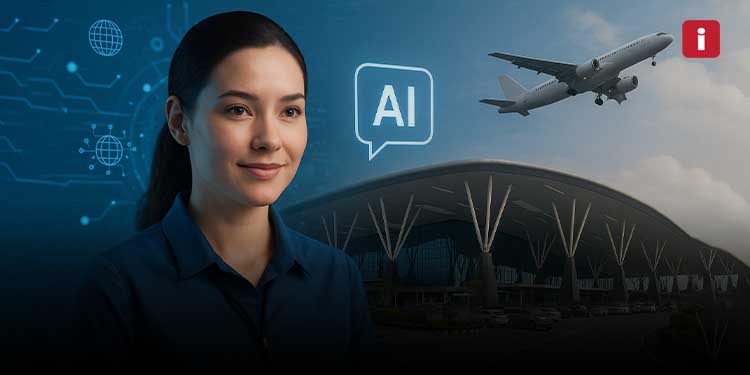What happens when Artificial Intelligence meets one of India’s busiest airports? The future of travel just landed in Bengaluru.
Bangalore International Airport Limited (BIAL), which operates Kempegowda International Airport Bengaluru, has taken a giant leap toward revolutionizing air travel. In a strategic partnership with KPMG in India, BIAL is harnessing the power of Generative AI (GenAI) to reshape airport operations, elevate passenger experiences, and set new benchmarks in the aviation industry.
What Is BIAL Building?
This isn’t just another AI chatbot or digital kiosk upgrade.
BIAL and KPMG have co-developed an enterprise-level GenAI platform designed to consolidate and learn from multiple data touch points across the airport. From customer interactions at self-service kiosks and mobile apps to queries received via websites and even future holographic assistants—this platform gathers data, analyzes it, and generates insights in real-time.
The aim? To create a smarter, faster, and more intuitive airport ecosystem.
The AI will be used to:
- Enhance passenger assistance through intelligent chatbots
- Streamline operations by automating routine queries
- Help staff make quicker, data-driven decisions
- Drive predictive maintenance and resource allocation
- Deliver consistent, personalized customer service across platforms
Why This Matters for Air Travelers
Imagine walking into an airport where AI not only guides you to your gate but also answers your baggage queries, tells you the best time to clear security, and predicts potential delays before they happen—all through one smart, interconnected system.
This is what BIAL is building.
According to reports, BIAL is set to invest ₹30–50 crore over the next five years into AI-based solutions. This investment will directly enhance the airport’s efficiency, passenger satisfaction, and international competitiveness.
It’s not just about tech—it’s about making travel seamless, reliable, and even enjoyable.
Why KPMG?
As one of India’s leading consulting firms in digital transformation, KPMG brings deep AI expertise, data governance frameworks, and enterprise scalability. Their partnership ensures that this isn’t just a flashy experiment, but a scalable model for how AI can transform public infrastructure.
The platform they’re building together is meant to be future-proof meaning it can evolve as technology advances. Today it’s about GenAI; tomorrow, it could integrate with biometric boarding, AI-powered surveillance, or sustainability optimization.
A Step Toward Global Standards
Kempegowda International Airport is already India’s third-busiest airport. With this move, it inches closer to being one of the most technologically advanced airports in the world.
The GenAI platform aligns with India’s broader push toward “Digital Public Infrastructure” (DPI) and smart governance. By pioneering this in aviation, BIAL is showing how digital transformation isn’t just for tech companies it’s for everyone, everywhere.
What’s Next?
While BIAL had previously explored the use of holographic AI assistants—similar to innovations seen in airports like Muscat—that plan is on temporary hold. Instead, BIAL is currently focused on enhancing its AI-powered chatbot system to deliver quick, accurate, and human-like responses.
Once the GenAI foundation is strong, we may see these visual assistants reintroduced with better capabilities, creating a multi-sensory AI experience at the airport.
Final Thoughts
This is more than a tech upgrade. It’s a paradigm shift in how airports operate and how passengers interact with them.
As BIAL and KPMG lead this innovation from the heart of Bengaluru, it sends a strong signal: India is ready to redefine what the future of travel looks like—not just locally, but globally.
Stay tuned as we track how this revolutionary AI platform transforms your next airport experience.













































